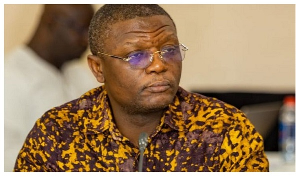Moree (CR), Feb. 3, GNA - Dr Gloria Quansah Asare, Director of Family Health Division of Ghana Health Service (GHS) on Tuesday announced that exclusive breast feeding in the country, increased from two per cent in 1988 to 54 per cent in 2006. She said this was achieved through vigorous and systematic programmes instituted by GHS as part of measures to combat high infant mortality rate in the country.
Dr Asare said this at the symbolic inauguration of 26 more baby-friendly designated health facilities in the Central Region, at Moree in the Abura-Asebu-Kwamankese (AAK) District. The Region now has 43 such facilities. They are located in Assin North and South, Gomoa East and West, Upper Denkyira, Upper Denkyira West and AAK Districts. Dr Asare underscored the importance of exclusive breast-feeding, which also enhanced the general health status of both mother and baby. She said 60 per cent of infant deaths could be prevented if mothers exclusively breast fed right immediately after delivery, adding that 1.5 million infants died globally every year due to inadequate breast-feeding.
Dr Asare urged nursing mothers to exclusively feed their babies for the first six months, since research indicated that breast-milk contains colostrums for the prevention of infections amongst infants. Dr McDamien Dedzo, Acting Regional Director of Health Services, said the region is now rated the third baby-friendly region after the Upper East and Ashanti Regions, and said it was a remarkable achievement that would help save infants right from birth to their first year of life.
He noted that baby-friendly facilities are to encourage mothers to exclusively breastfeed their babies for the first six months to safeguard them from infections and preventable deaths. He charged other health centres wishing to be designated baby- friendly, to work harder and organize durbars to create awareness, among other measures.
Madam Rebecca Ahun, UNICEF Representative in Ghana, pledged that her organisation would continue to be part of baby friendly programmes by the GHS to help ensure the total reduction of infant and child mortality. She outlined the areas of support her organization provides for the programme, mentioning the training of policy makers and assessors as well as mother support groups and personnel of the GHS, and urged the mother support groups to encourage others to help promote the exercise. Nana Ama Amissah III, Queen of Mankessim, and president of the regional queenmothers' association, who chaired the function, appealed to churches not to allow the delivery of babies at their premises, but to encourage expectant mothers to visit health centres to curb infant and maternal mortality. 03 Feb. 09
Health News of Tuesday, 3 February 2009
Source: GNA
















